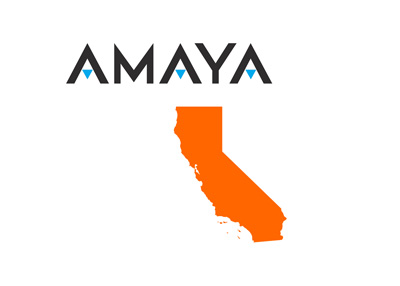Party Poker used to be the 800 pound gorilla of the online poker landscape. Despite the shoddy software, deplorable customer service and poor tournament selection, Party Poker thrived, mainly due to first mover advantage and a relentless marketing campaign.
However, in case you have been living under a rock the last month, the US Government craftily snuck in anti-gambling legislation in the Port Security bill. The legislation didn't make online gambling illegal, but it made it illegal for banks and online casinos to process financial transactions. So, if a poker room such as Party Poker processes a credit card payment so that someone can play online, they are breaking American law.
Because Party Poker is a publicly traded company, they decided to take the step of simply switching off all US players. A mighty blow, considering that it is estimated that 90% of Party Poker's revenues come from the United States. Why did they do this, while other rooms such as Poker Stars and Full Tilt Poker said that they will continue to accept US players? Because of the fact that Party Poker is a publicly traded company, and it is pretty tough to operate a public company that is willingly breaking the law of the most powerful country on the planet. So, Party Poker shut down to the US, and is basically dead within the next year. In my opinion, you will see Party Poker's numbers drop off into oblivion, as no one is going to want to play in a ghost town; especially a ghost town with shoddy software and customer service.
So, the 800 pound gorilla is dead. Who is left standing after this legislation? The big rooms that have said that they are going to remain open to US players are: Poker Stars, Full Tilt Poker, Absolute Poker, and Ultimate Bet.
If you play on Poker Stars and Full Tilt Poker, you have probably already seen numbers sharply rise over the past couple of weeks, as players move from the practically defunct Party Poker. The no limit hold'em cash games on Poker Stars are stacked with players, and Poker Stars reported their biggest ever Sunday $215 tournament prize pool ever. Full Tilt Poker is going to be an obvious beneficiary as well, and I have already noticed a marked increase in the number of players playing there.
The big question is, will the banks have to restrict Neteller payments? That is the big question. Some bank people that I have talked to have said that it would be almost impossible; others have said, not so. If Neteller remains open and if US players can still move funds to online rooms using Neteller, then the industry will continue to thrive. If Neteller is forced out, then it will start to pinch the poker rooms. However, the people behind some of these companies are extremely clever and capable businessmen, and I am sure that a new method of funding would pop up just as soon as Neteller closes. When you are talking about multi-billion dollar industries, it is really impossible to expect these companies to just close up shop cause the US says so.
My prediction for the future? Online poker continues to be a strong industry, though the boom is definitely over. Registrations to the World Series of Poker in 2007 will be halved, and players will be much more careful about taking endorsement deals.
Party Poker will slowly die and will be out of business in a year, or sold to another room. The founders don't care, they cashed out billions long ago. Poker Stars and Full Tilt Poker will become the two main leaders in the industry, and online poker will remain a strong and profitable industry.
--
Filed Under: Poker Legislation



